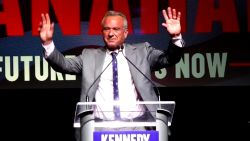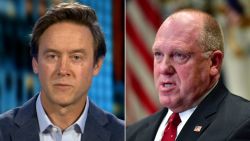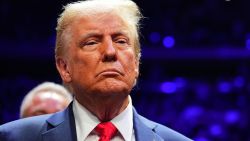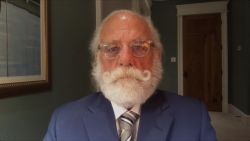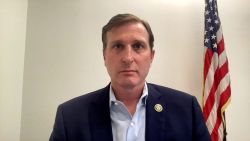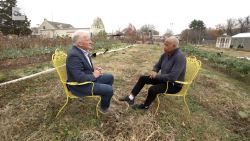Before Robert F. Kennedy Jr. took the stage at a campaign rally in Des Moines, Iowa, last month, a team of his campaign staffers and volunteers organized hundreds of attendees through an assembly line of government forms, ID checks and color-coded wristbands. The bureaucratic workforce contrasted starkly against the classic rock music blaring over the speakers, the crowded bar at the back of the venue and the jovial spirit circulating among Midwesterners excitedly awaiting Kennedy’s remarks.
But the paperwork was a fundamental ingredient of the rally’s significance. The independent candidate’s campaign planned to use the event to qualify for Iowa’s presidential ballot through a unique process that requires hundreds of registered voters in Iowa to sign up for a convention-like process to formally nominate Kennedy to appear on the state’s ballot.
The Iowa event is part of the Kennedy campaign’s push for ballot access in all 50 states and Washington, DC, an undertaking that has endured hiccups and won incremental victories since the effort began last year, capitalizing on voters’ appetite for an alternative to the presumptive nominees from the major parties, President Joe Biden and former President Donald Trump.
“People on both sides are waking up and wanting an option,” Dan Twelmeyer, a Kennedy supporter from Des Moines said. “They don’t want the lesser of two evils. They want hope, he delivers a message of hope.”
After his remarks in Iowa, Kennedy doubled down on his audacious 50-state ballot access goal and said the campaign will achieve full ballot access in the next few months.
“We will have ballot access in every state by the end of July,” Kennedy told reporters.
Whether Kennedy succeeds in his ballot access mission could have major implications on the playing field ahead of the presidential election. An NPR/PBS/Marist College national poll of registered voters released earlier this month showed Kennedy earning 11% support in a hypothetical five-way matchup between Biden, Trump, Kennedy, independent candidate Cornel West and Green Party candidate Jill Stein. Biden and Trump both received 42% support in the same poll.
It’s unclear if Kennedy would draw more support from Biden or Trump, but in a close race, a third-party candidate with substantial support has potential to tip the balance of the electoral map in unknown ways. In the 2020 election, Arizona, Georgia and Wisconsin were all decided by margins of less than 1 percentage point.
Drew Dietle, a 37-year-old Kennedy supporter from Golden Valley, Minnesota, says he believes the environment is ripe for someone like Kennedy to make a significant impact.
“I don’t think we’ve ever had two candidates like Trump and Biden who are more unpopular, and so I think the road is wide open for a third-party candidate to be successful this time around.”
Kennedy’s ballot push could also go a long way to proving the legitimacy of his insurgent third-party bid in the eyes of voters who are curious about his message but concerned about his electability.
Stefanie Westendorf, a 47-year-old plumber from Dayton, Ohio, voted for Trump in 2016 and 2020 but has also voted for Democrats in previous elections. She said she’s considering voting for Kennedy because of his background in environmental advocacy and because “he’s not a politician.” Still, she’s leaning toward supporting Trump in November because she doesn’t think Kennedy can qualify for the ballot in her state.
“I like Kennedy, but, you know, he’s not gonna be on the ballot in Ohio,” Westendorf told CNN in March.
Kennedy is officially on the ballot in five states: battleground Michigan, Utah, Hawaii, Delaware and California. The campaign says it’s gathered enough signatures to put Kennedy on the ballot in two more battlegrounds, North Carolina and Nevada, as well as Ohio, Idaho, Nebraska and Iowa.
The campaign has adopted a wide range of methods meant to find the easiest way to navigate the often disparate and convoluted processes to meet different ballot qualification criteria in each state. Volunteers have collected signatures outside sporting events, on college campuses, at festivals and state fairs and more across the country. The campaign has even drafted off the exposure of more prominent political events: Volunteers collected enough signatures to appear on the New Hampshire ballot by canvassing voters at polling places on the day of the Granite State’s presidential primary in January.
The campaign typically aims to collect at least 60% more signatures than the required amount in each state, a campaign official told CNN, to avoid invalidated signatures undermining Kennedy’s petition.
Kennedy has also reached out to minor parties with ballot eligibility in some states to circumvent the signature-gathering process altogether, making strange bedfellows of Kennedy and some fringe political groups. He’ll appear on Michigan’s ballot on the Natural Law Party line, a party best known for promoting transcendental meditation. In California, Kennedy will be on the ballot thanks to the American Independent Party, a group founded in the 1960s to promote segregationist Alabama Gov. George Wallace’s third-party bid in 1968.
In a video statement announcing his California ballot qualification, Kennedy condemned Wallace’s views and said the party has “been reborn as a party that represents not bigotry and hatred, but rather compassion and unity and idealism and common sense.”
Sierra Lyons attended a Kennedy campaign event in Michigan celebrating his ballot access win in the state along with her mother. A native of Macomb County who voted for Trump in 2020, she’s been volunteering for Kennedy since last year. She said she’s excited to have the chance to vote for Kennedy, despite criticisms from Democrats and Republicans that Kennedy could be a spoiler for Biden or Trump.
“I’m not even letting myself go there because I’m not going to vote for Biden or Trump, just because people say the odds are stacked against Kennedy,” Lyons said.
Roadblocks to access
The campaign’s ballot access infrastructure is overseen by campaign manager Amaryllis Fox Kennedy and Nick Brana, the campaign’s ballot access director, who coordinate strategy with staff and volunteers in each state. Trent Pool, a key ballot access consultant who has worked with the campaign since last year, has helped bring professional petition circulators into the campaign as it ramps up signature gathering in several states. (Pool was charged with assault in Manhattan last week, a New York police spokesperson told CNN. Pool’s attorney told CNN he is “innocent of all charges.”)
The team works closely with Paul Rossi, the campaign’s lead ballot access attorney who has spearheaded lawsuits challenging petition filing deadlines and signature gathering protocols and coordinated the campaign’s defense against legal challenges over its ballot access work.
In Utah, the state moved back its petition deadline for independent candidates after Kennedy sued the state. In Idaho, the state legislature changed its statutes on petition gathering after the campaign filed a lawsuit challenging its petition deadline and rules around signature gathering. And in Hawaii, the campaign successfully defended a challenge to invalidate its ballot petition from the state Democratic Party despite not being formally represented in the hearing by an attorney.
Despite those legal victories, Kennedy still faces a long road to nationwide ballot access. The campaign has yet to file petitions in most states, which will subject the campaign to scrutiny from more state elections officials and outside groups over the validity of their petitions and their signature collection methods. The campaign has already faced issues in Nevada, after the Secretary of State’s office admitted it “provided inaccurate guidance” to the Kennedy campaign regarding whether it needed to announce Kennedy’s vice presidential running mate prior to gathering signatures in the state.
The campaign is waiting to submit petitions in states where it said it has collected enough signatures to qualify until the deadlines in those states draw closer in hopes of reducing opportunities for legal challenges from Democrats and Republicans, a second campaign official told CNN.
American Values 2024, a super PAC backing Kennedy, had initially outlayed an eight-figure initiative earlier this year to gather signatures on behalf of Kennedy in some states. The PAC said it gathered enough signatures to put Kennedy on the ballot in Georgia, Michigan, Arizona and South Carolina. But in the wake of a Federal Elections Commission complaint filed by the Democratic National Committee alleging the PAC illegally coordinated with the Kennedy campaign to set up the ballot access operation, the PAC has abandoned its plans despite spending more than $2 million on the effort, a PAC official told CNN.
While most states require candidates to collect under 10,000 signatures to qualify, some states require candidates to meet significantly larger thresholds. Florida, for example, requires candidates to collect more than 145,000 signatures to qualify in the state. But Kennedy has expressed optimism about hitting signature targets in some states with the largest thresholds, like New York and Texas. New York in particular is a priority for Kennedy due to the state laws that require a high volume of signatures to be gathered in a short six-week window, the second campaign official told CNN, and the campaign sees qualifying in the state as a critical step in gaining ballot access nationwide. The campaign has volunteers in all 62 counties in New York working to collect the necessary 45,000 signatures before the state’s petition filing window closes at the end of May.
Matt Rigolini is a 43-year-old health care worker from Huntington, New York, who’s backing Kennedy. He said he didn’t vote in the 2020 election and would stay home again unless Kennedy is able to qualify for the ballot in New York.
“If Kennedy wasn’t on the ballot whatsoever, I would not be showing up to the polls. I have zero interest if he’s not on the ballot,” Rigolini said. “Trump is a non-option, and Joe Biden’s a non-option. So I would just be happy to sit that one out.”
The legal battles and signature-gathering challenges amount to financial hurdles that typically prevent independent candidates from gaining ballot access nationwide. Kennedy’s campaign ended March with about $6 million in cash on hand after ramping up spending in March to $4.5 million. But the campaign has received a significant financial boost from Nicole Shanahan, Kennedy’s independently wealthy vice presidential nominee, who contributed $2 million to the campaign in March. Politicians can contribute unlimited sums of money to their own campaigns, meaning Shanahan could continue to provide liquidity as the ballot access effort picks up steam.
For Kennedy, gaining ballot access is the first measure of his outsider campaign’s potency in the race. For some voters, their support for Kennedy is predicated on whether he can compete in every state. Debra Chilcott, 57, said she hopes Kennedy has enough support nationwide to get him on the ballot in every state. But Chilcott, a paralegal from Patchogue, New York, said that if he doesn’t get on the ballot everywhere, she’ll likely vote for Trump, whom she’s supported previously.
“I want to obviously put my money where the best bet is,” she said.
But while obtaining ballot access nationwide would mark a major milestone for Kennedy, it’s unclear at this point whether their grassroots outreach for petition signatures will help build support for Kennedy in November. Benjamin Novak, a Maryland voter and a senior at Towson University, gave his signature to help Kennedy get on the ballot in Maryland. He said he hopes Kennedy can gain ballot access across the country for the benefit of voters who want to support him. But he said he’s planning on voting for Biden in November.
“If I’m going to be honest, I’m not a huge Kennedy fan but I think it’s important to have options for third-party candidates even if they’re not your favorite. It sets a good precedent for the future,” Novak said.
But for some voters, the opportunity to potentially cast a ballot for a high-profile third-party candidate is an exciting prospect. Doniella Pliss, a 52-year-old from Springfield, New Jersey, said she’s planning to vote for Kennedy if he qualifies in her state. She’s voted for third-party candidates previously but typically supports Democrats. She said she hopes to be able to vote for Kennedy because he aligns with her values.
“Look, I’m not a rich person. I cannot buy influence. All I can offer is my vote. I value it very highly. My vote is never wasted,” Pliss said. “Do I see a path to victory? In an ideal world, maybe. In practical terms, maybe not. But for me personally, this vote is more of my choice, and my action and my civic duty. And that’s what I’m going to use it for.”


